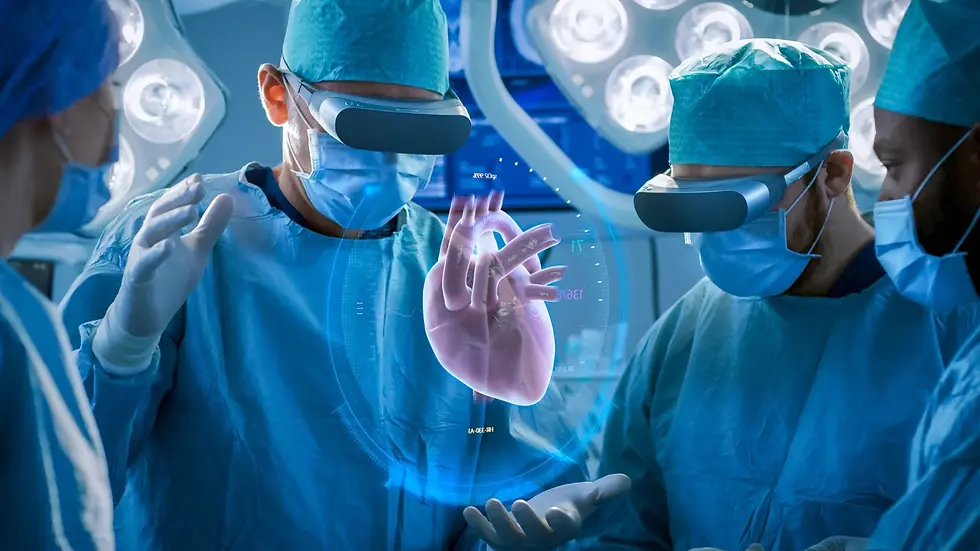AI in Healthcare: How Artificial Intelligence is Revolutionizing Patient Care
- MedWords Editorial

- Aug 9, 2025
- 2 min read

In the last decade, Artificial Intelligence (AI) has gone from a sci-fi buzzword to a real-world game changer in almost every industry, and healthcare is no exception. From predicting diseases before symptoms appear to helping doctors make faster, more accurate decisions, AI is reshaping how we approach medicine. The shift isn’t just about technology; it’s about creating smarter, more personalized, and more accessible healthcare for everyone.
Smarter Diagnosis, Faster Results
One of AI’s biggest strengths lies in diagnostics. Traditional diagnosis often depends on a doctor’s experience, time, and access to tests. AI, however, can analyze massive amounts of medical data: scans, lab results, even genetic information, in seconds. For example, AI-powered imaging tools can detect tiny signs of cancer or other conditions that the human eye might miss. This doesn’t replace doctors but gives them a powerful partner to make better-informed decisions quickly.
Personalized Treatment Plans
No two patients are the same, and AI is helping medicine finally reflect that. Using patient data such as genetics, lifestyle, and medical history, AI can suggest highly personalized treatment plans. For instance, it can recommend the best drug dosage for an individual or even predict which treatments might cause side effects. This level of precision medicine means better results and fewer trial-and-error approaches.
Predicting and Preventing Illness
Prevention has always been better than a cure, and AI is making prevention smarter. By analyzing wearable device data, health records, and even environmental factors, AI can flag early warning signs for conditions like heart disease or diabetes. Imagine getting an alert months before a health problem develops, giving you time to change habits or start preventive care.
Reducing Burnout for Healthcare Workers
Doctors and nurses are often overwhelmed with administrative tasks, from filling out endless forms to updating patient records. AI can take over these time-consuming jobs, freeing healthcare workers to focus more on patient care. Voice-to-text AI tools, automated chart updates, and predictive scheduling are already lightening the load in many hospitals.
Making Healthcare More Accessible
In many parts of the world, access to skilled doctors is limited. AI-powered telemedicine platforms can bridge this gap, allowing patients to receive quality consultations without traveling. Translation tools can help doctors and patients communicate across language barriers, while AI chatbots can answer basic health questions 24/7.
Challenges and Ethical Questions
While AI brings huge potential, it also raises important concerns. How is patient data stored and protected? Can we trust AI’s recommendations completely? What happens if AI makes an error? These are critical questions that need careful attention to ensure technology serves patients safely and ethically.
The Road Ahead
AI in healthcare is still evolving, but it’s clear that it’s not just a passing trend. As technology gets smarter, more affordable, and more widely adopted, it will continue to transform patient care. The key will be finding the right balance, where AI enhances, but never replaces, the human touch that is at the heart of medicine.



Comments